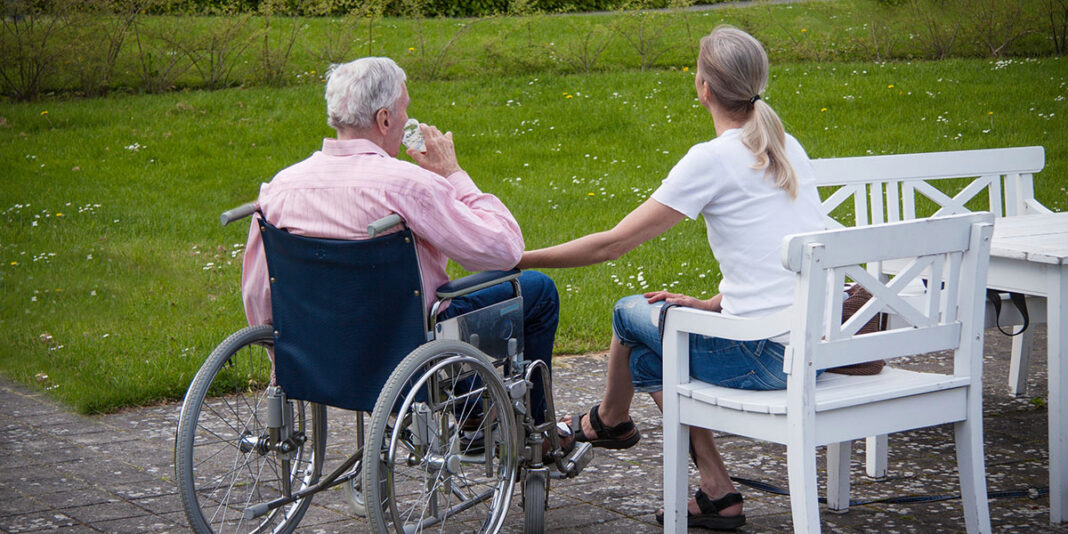A Bulgarian woman watching an elderly man in Germany won a landmark case
Isabella Marchinek knows from personal experience: “Polish caregivers are fleeing from Germany to Switzerland.”
Lack of rest and unpaid overtime in Germany are part of everyday life. In Switzerland, Marchinek takes care of a 93-year-old woman, and the agreed time of 42 hours per week is met.
The good conditions in which Isabella Marnicek works are the result of a landmark lawsuit won in 2015 by a Polish nurse. Her employer was then ordered to pay her 13,000 Swiss francs for overtime.
A case in Germany is also about to change the industry. On June 24, 2021, the Federal Labor Court ruled that those working in this field, who are mostly women from Eastern Europe, should receive at least a minimum wage for the hours when they are not actively employed but are available. Many of them live in the homes of the elderly people they care for and must be prepared to respond at all times. The case affects between 100,000 and 300,000 German families with elderly and sick people, Deutsche Welle reports.
How is Switzerland?
Following the court ruling in 2015, the Swiss authorities developed a standardized employment contract for the industry. It regulates working hours: 44 hours per week, the right to rest – one full and another half working day per week, as well as the payment for the additional hours in which caregivers must be available at night – from 25 to 50% of the hourly rate , depending on the condition of the person being cared for.
However, individual cantons are responsible for enforcing this standardized employment contract, and some have not adopted the new rules, said Elvira Vigers of the vpod union. In the last few years, about ten other lawsuits have increased public interest and awareness of the sector. But there are still many problems, Wiggers said, such as unpaid overtime.
“After all, there is an understanding that the willingness to react at all times must be rewarded,” she said.
Families who use the services of caregivers in Switzerland pay more than those in Germany. Only the fee for intermediary companies is between 3800 and 6700 euros. In Switzerland, where the standard of living is higher than in Germany, caregivers’ salaries are also better – they receive between 2,100 and 2,400 euros in net money.
Isabella Marchinek is hired without an intermediary company. “During the first two months in Switzerland, I photographed the list of hours I worked and sent them by e-mail to the authorities,” said the 58-year-old Pole.
In Austria, caregivers are self-employed
There are about 60,000 nurses in private homes in Austria. Since the Nursing Act was passed in 2007, almost everyone in the industry works as self-employed. At present, carers in private homes are insured and registered, but as self-employed persons they are not entitled to overtime pay or for the time they are available. Jobs are provided through intermediary agencies that have too much power and determine pay. Daily rates for carers vary between 50 and 80 euros gross. Older people are paid between 2,400 and 3,000 euros a month. Families receive financial support from the state if the income of people in need of such a service is too low. In Germany, the Austrian model is often seen as an example. “Home care is usually not possible with classic employment contracts,” said Daniel Schloer of the Nursing Association. “Our legal system does not currently offer a solution for people who live and work in the same place. We urgently need an alternative similar to that in Austria,” he said.
But according to Wolfgang Matzal, a professor of labor and social law at the University of Vienna, the Austrian model cannot be followed. If you follow someone’s orders, “it means you are an employee, not an entrepreneur,” Matsal explains, citing a 2011 ruling by the Austrian Supreme Court. “I find it scandalous that the decision of the Supreme Court on this issue is simply ignored,” he added.
The industry benefits from the different standard of living in Europe
In many places in Europe, care for the elderly and sick is still based on differences in pay between countries. And the demand is directed to increasingly poorer countries: “First there were women from the Czech Republic and Poland, then Romanians and Bulgarians, and now we are looking for staff from Moldova and Ukraine,” say industry experts.









